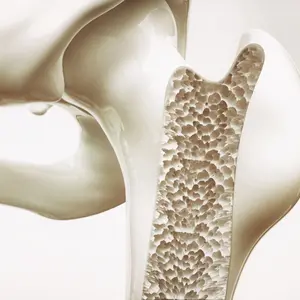

WELLthier Living and Aging

WELLthier Living and Aging
Managing Menopause: How to Help Reduce Symptoms of “The Change”
Mood swings, night sweats, brain fog, and hot flashes are all telltale signs of menopause. Because estrogen levels decline as a woman ages, symptoms of menopause can wreak havoc on her overall sense of well-being. Progesterone, a hormone tasked with naturally calming the body, also declines. When the levels of these two hormones drop simultaneously it can have a significant impact, causing emotional distress and weight gain.
During the fertile years, estrogen naturally fluctuates each month until a woman enters perimenopause, a period of time when estrogen gradually declines. This can start up to ten years before menopause, which is when a woman has gone a complete year without having a menstrual cycle. Most women experience hot flashes during menopause. These episodes of being suddenly overheated can leave a woman drenched in perspiration. Warm temperatures, a hot shower or bath, and working out can contribute to hot flashes, as can caffeine, spicy food, alcohol, stress, and smoking. Anything that causes blood vessels to dilate can cause a hot flash, which lasts a few seconds to 10 minutes. Other symptoms of menopause include night sweats, vaginal dryness, urinary tract infection, decreased libido, low mood, sleep difficulties, and memory problems.
There are ways to manage menopause. Although hormone therapy has been linked to an increased risk for heart disease and breast cancer, short-term use of low doses of bio-identical estrogen and progesterone can offer much-needed relief. Medications are also available to reduce hot flashes, night sweats, and mood problems.
Eating a well-balanced diet of fresh produce, clean protein, and healthy fats is essential. Alcohol should be avoided since it can exacerbate the frequency of hot flashes and cause emotional issues. Stress can be managed with activities like meditation, yoga, and acupuncture. Regular exercise helps reduce anxiety and boost mood. Sleep is often fitful during menopause. Keeping the bedroom at a cool temperature and sufficiently dark can help ensure a good rest.
Menopause is a challenging time of life, but by taking good care of one’s health and well-being, the symptoms can be reduced and managed. It also helps to remember that menopause doesn’t last forever.
REFERENCES
Amen Clinics. (2021, September 15). 7 tips to manage emotional and physical menopause symptoms. https://www.amenclinics.com/blog/7-tips-to-manage-emotional-and-physical-menopause-symptoms/?


 By
By






